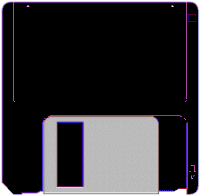|
If you make a revolution, make it for fun.
Don't do it in ghastly seriousness,
don't do it in deadly earnest,
do it for fun.
- D.H. Lawrence All our machines are screens, and the interactivity of humans has been replaced by the interactivity of screens. Nothing inscribed on these screens is ever intended to be deciphered in any depth: rather, it is supposed to be explored instantaneously, in an abreaction immediate to meaning, a short-circuiting of the poles of representation. - Jean Baudrillard |
|

That this renovation of the reality so recently deconstructed should have to be panic-stricken is not necessarily predetermined. Realizing the impossibility of achieving some ultimate determinable meaning, of "self" or of whatever, the cognizant subject realizes that the field of possibility is limitless, and delights in the "predicament." The "trick," it seems, of these cognizant subjects, is that they reconstruct and renovate reality not on the level of the metanarrative (which is now impossible), but on the level of the "mininarrative" -- a focus on the self, an aestheticization and avowed fictionalization of the self -- that both provides a counter to the postmodern condition of ennui and serves to fill the hole left by the twentieth-century project of deconstruction. What the relatively simple and already existing technological tools of the Web have done is provide a ready medium for this small-scale renovation of reality. What the authors of these personal Web pages -- and, in particular, these personal Web diaries -- have done is this: They have dispensed with the impossible task of recovering totalizing, transcendental reality in favor of a reality that now fits on a floppy disk.


|
|
|
|||